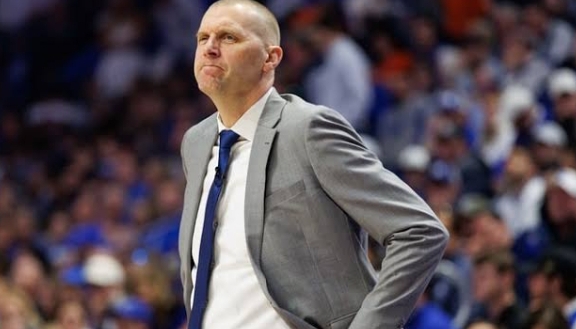Busted? NCAA’s Final Decision on Referees Sparks Even More Controversy!
The Kentucky vs. Oklahoma showdown may be over, but the controversy surrounding it is far from settled. After days of speculation and heated debates over the officiating, the NCAA has finally released its verdict on the referees’ involvement in the game. However, instead of putting the issue to rest, the ruling has only ignited even more outrage.
The game was filled with questionable officiating, especially in the closing minutes. Oklahoma, trailing by just a few points, found itself on the wrong end of several controversial foul calls, while Kentucky seemingly benefited from no-calls and favorable rulings. The most debated moment came when Oklahoma’s top player was called for a questionable foul in the final seconds, giving Kentucky free throws that ultimately secured the win. Fans immediately cried foul—some even accusing the referees of intentionally influencing the outcome.
As accusations of bias and potential gambling ties surfaced, the NCAA launched an internal investigation into the officiating crew. With the rise of legal sports betting, concerns about referee integrity have never been higher, and many feared this game could be the latest example of outside influences creeping into college sports.
After days of scrutiny, the NCAA issued its final ruling: no concrete evidence linked the referees to any form of game-fixing or betting-related misconduct. However, the investigation did acknowledge “multiple errors in officiating” that may have affected the game’s outcome. While the NCAA stopped short of admitting the game was mishandled, it did suggest that new measures would be considered to improve officiating accountability moving forward.
Instead of calming the controversy, the decision has only fueled frustration. Oklahoma fans and analysts argue that even if no foul play was found, the officiating mistakes still cost them the game. Some believe the NCAA is protecting its referees rather than addressing a growing issue in college basketball.
On social media, slow-motion replays of the most controversial calls continue to circulate, with many demanding reforms such as expanded video review or increased referee oversight.
This scandal has reignited a larger debate about the role of officiating in high-stakes games. How much influence do referees truly have? And what safeguards need to be put in place to ensure fairness? While Kentucky’s win remains official, the NCAA’s verdict has done little to silence critics.
Instead, the conversation about referee accountability in college basketball is only growing louder.

